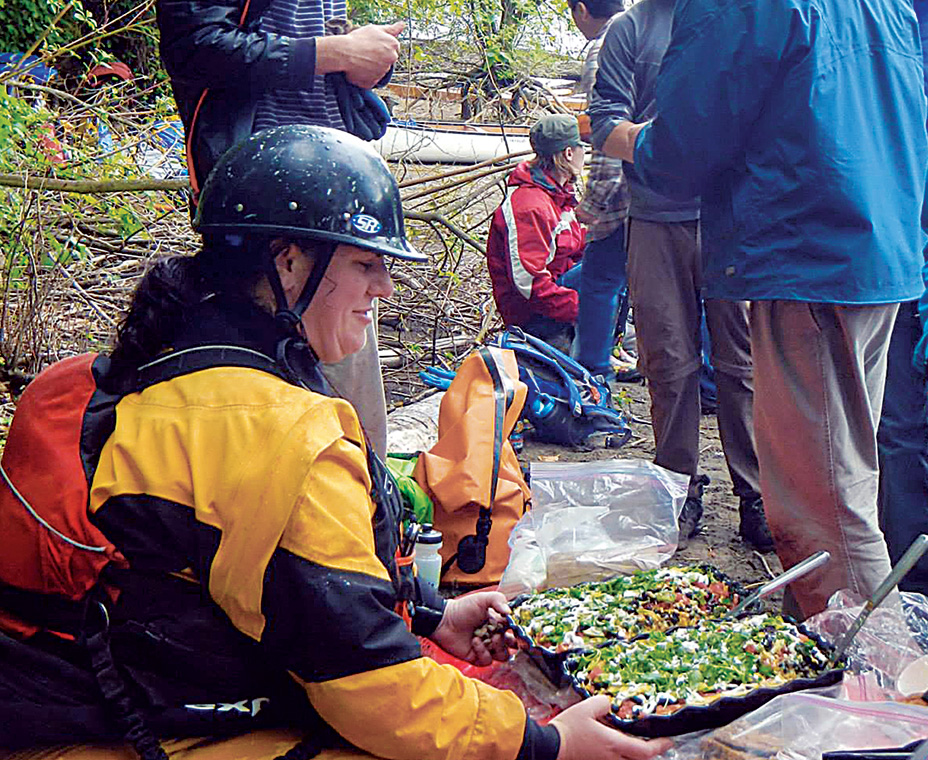Last year, when global leaders were preparing for a momentous climate change conference in Paris, Ben & Jerry’s leaders knew their company should have a role to play. The Vermont-based ice cream brand has focused on social and environmental initiatives since its inception in 1978.
For the conference, Ben & Jerry’s created an ad campaign, designed a new flavor (Save Our Swirled), and appeared at festivals, encouraging customers everywhere to demand their leaders take action in Paris.
But, as Rob Michalak, global director of social mission at Ben & Jerry’s, says, “If we were going to talk the talk, we had to walk the walk.” The company determined the carbon footprint for each ice cream pint and applied a corresponding cost to it, representing the environmental impact. As of January 1, 2015, that price—$10 per metric ton of ice cream—became an internal fee within the company, to be paid like any required expense. The money goes exclusively to reducing the Ben & Jerry’s carbon footprint.
Given its commitment to these types of initiatives that benefit the community—or, in this case, the environment—Ben & Jerry’s is a certified B Corp. B Corps are for-profit companies that meet a high set of social and environmental standards developed by the nonprofit B Lab. Michalak describes the certification as similar to a Fair Trade or organic certification. To become a B Corp, a company must undergo a rigorous and, Michalak says, immensely helpful assessment every two years to renew its certification. Then it participates in local and global B Corp events that allow certified brands to meet like-minded companies and brainstorm ways to solve problems together.
More restaurants are becoming B Corps or Benefit Companies, which is a state-based legal designation rather than a private certification that also requires documentation. It is possible for a business to be both, and such accreditations challenge companies to rethink what it means to be “profitable.”
“By doing good, we will do well in the world,” says Edward Gerdes, vice president and general counsel at Café Yumm!, a fast casual that was among Oregon’s first Benefit Companies.
Like other Benefit Companies and B Corps, Café Yumm! adheres to the triple bottom line of social, economic, and environmental considerations. The company is not truly profitable unless it is making gains in all three categories.
Within that triple-bottom-line framework, Benefit Companies and B Corps tend to make broadly similar strokes: paying good wages, instigating recycling and composting programs, using sustainable materials, and volunteering in their communities. The particulars vary depending on product, local need, and company size. For instance, Ben & Jerry’s puts a major focus on its supply chain; one initiative involved a years-long petition to the EPA to import environmentally friendly freezers.
Café Yumm!’s three main initiatives are donating food to local food banks, working with public schools via monetary and food donations, and cleaning up the water supply. Last year, it worked with the city government of Eugene, Oregon, to develop a composting program for local restaurants; the resulting compost is sold in local garden shops. Café Yumm! works with groups that clean up all of the major Oregon rivers by donating food to volunteers and, often, employees’ time. Café Yumm! also has a robust recycling and compost program, uses sustainable packaging, and sources from local farms.
Bull City Burger and Brewery in Durham, North Carolina’s first B Corp restaurant and the first B Corp brewpub in the U.S., has similar initiatives. Founder and owner Seth Gross is particularly proud of the restaurant’s recycling and composting program.
“What is allowed to go to the landfill has to fit into a small trash can, like what you’d see under a desk,” Gross says. The initiative has also inspired businesses nearby. “We started this initiative over three years ago and haven’t seen the dumpsters overflowing since.”
It has also inspired the team to make personal changes. “They undergo a paradigm shift,” he says. “We train them in where to put things, it becomes second nature, and then people do it at home.”
Employee life is an important part of Bull City Burger and Brewery’s social initiative, which also includes working with Habitat for Humanity and local schools.
The hardest part of being a legal Benefit Company, Gerdes says, is documenting all of those initiatives. Café Yumm! is required to publish an annual report describing its benefit to the public, and to make that report easily accessible. But, he says, it’s worth it. Unlike B Corp certification, being a Benefit Company comes with legal protections, meaning that shareholders cannot sue if the company does not do everything possible to maximize financial profits.
But Michalak prefers the B Corp approach, which he believes can help create a prosperous and equitable global economy. B Lab defined criteria and standards so the world’s companies could measure from the same stick, Michalak says.
The B Corp community was an important factor for Gross. “When I learned about B Corp, I said, ‘Oh my goodness, there are likeminded people out there—how do I join them?’” he says. “Having the certification gets the conversation going, and getting people to talk about it will inspire other businesses.”






